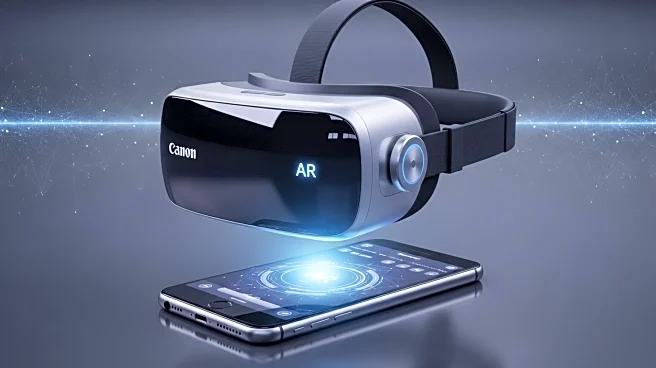What is the story about?
What's Happening?
In 2025, augmented reality (AR) is poised to significantly alter the landscape of consumer technology, with seven key developments highlighted by Meta Connect and industry reports. Meta's Orion demos and new Ray-Ban smart glasses with wristband controllers are setting new hardware expectations. Apple has shifted focus from Vision Pro to smart glasses, accelerating timelines for mainstream adoption. These advancements suggest faster device churn and new UX and privacy tradeoffs for developers and consumers.
Why It's Important?
The rapid evolution of AR technology could redefine how consumers interact with devices, potentially replacing smartphones with smart glasses. This shift may lead to new opportunities for app developers to create innovative AR experiences, while also raising privacy concerns due to increased data collection and spatial mapping. The competitive push from major tech companies like Meta and Apple could drive faster adoption rates, influencing market dynamics and consumer behavior.
What's Next?
As AR technology advances, developers will need to adapt to new UX paradigms that prioritize glanceable interfaces and subtle overlays. Companies will likely face regulatory scrutiny over privacy and data usage, necessitating transparent policies and consumer protections. The race to develop and market smart glasses will continue, with potential impacts on advertising, location-based services, and everyday technology use.
Beyond the Headlines
The integration of AR into daily life presents ethical challenges, particularly regarding user consent and data security. As smart glasses become more prevalent, societal norms around technology use and personal privacy may shift, prompting discussions on the balance between innovation and ethical responsibility. The long-term implications of AR could influence cultural perceptions of technology and its role in human interaction.















